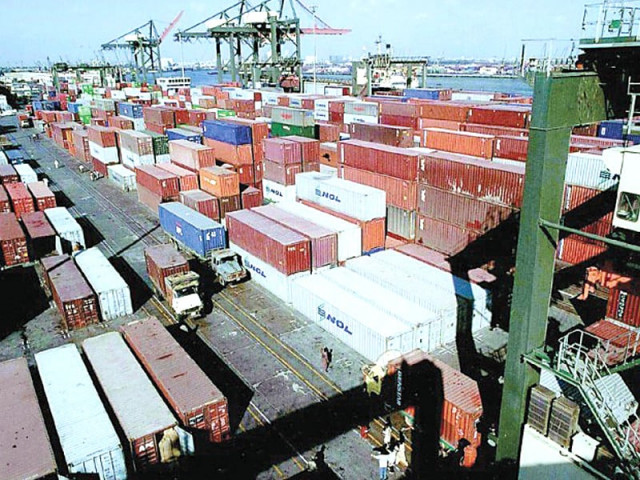Faisalabad dry port: One year on, cargo services remain suspended
Railways unable to spare engines, wagons for transport of cargo.

Cargo handling services have remained suspended at the Faisalabad Dry Port for the last one year as the Pakistan Railways is not in a position to transport cargo in the face of financial and logistics constraints, leading to a significant increase in the cost of doing business for the industry.
Even repeated pleas from the port authorities have failed to convince the management of Pakistan Railways to restore the facility. According to the port officials, the railways is turning down all requests for cargo handling on the grounds that the organisation is in crisis and cannot spare engines and wagons for the cargo.
According to data of the last five years, the business at the port has significantly dropped. In 2006-07, the number of export containers handled was 33,131, but in 2011-12 the figure came down to 6,735.
Import containers were 3,728 in 2006-07, which fell to 2,786 at the end of 2011. The port authorities largely attribute this to the refusal of railways to provide required infrastructure.
The new chairman of Faisalabad Dry Port Chaudhry Muhammad Siddique told The Express Tribune the efficiency of the port had been consistently decreasing, thanks to the refusal of railways to provide wagons.
He said the port authorities were trying to persuade the importers and exporters to use the port, but they were discouraged by the absence of infrastructure. The management has hired trailers for registered companies to take their cargo from the dry port to the Karachi Port.
However, industrialists and exporters prefer cargo train because of it being cheaper compared to the trailers. The industrialists pay an additional Rs10,000 per container to the trailers.
“Any exporter, who is sending 100 containers via train, can save Rs1 million,” Siddique said and announced if the government restored the cargo train service, the dry port would play a vital role and give better performance.
Duty refund
This year, the exporters of Faisalabad had been paid Rs200 million in duty drawback, out of total claims of Rs350 million, Siddique said and asked the Federal Board of Revenue (FBR) Chairman Ali Arshad Hakeem to release the remaining amount.
“This amount had been blocked for the last three to four years. We have done great effort with the help of collector customs of the dry port to resolve the matter.”
Energy crisis
Faisalabad Dry Port former chairman Mian Latif, who is also chief executive officer of the Chenab Group, said the slowdown in export shipments through the dry port had forced the industry to run at half the capacity with low export orders.
“Few years ago, the energy crisis was not as severe as today and the industry was giving business to the dry port.” At that time, he said, big exporters booked the whole train for making shipments. However, in the current scenario when the exporters have few containers, they transport them one by one through private cargo services.
The industrialists, who have alternative sources of energy, were exporting and the remaining had not even been able to meet local demand, he said.
Published in The Express Tribune, October 7th, 2012.



















COMMENTS
Comments are moderated and generally will be posted if they are on-topic and not abusive.
For more information, please see our Comments FAQ